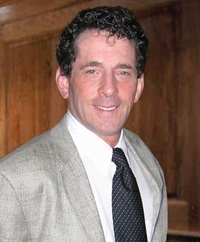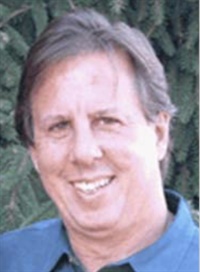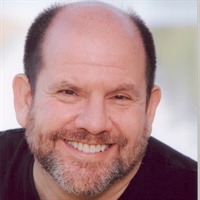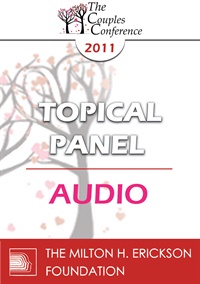CC11 Topical Panel 02 - Internal Systems: Which Ones and Do They Matter? - Richard Schwartz, PhD; Stan Tatkin, PsyD; Jeffrey Zeig, PhD
- Average Rating:
- Not yet rated
- Topic Areas:
- Topical Panels | Internal Family Systems (IFS) | Psychotherapy
- Categories:
- Couples Conference | Couples Conference 2011 | Pioneers in Couples and Family Therapy
- Faculty:
- Jeffrey Zeig, PhD | Richard Schwartz, PhD | Stan Tatkin, PsyD, MFT
- Duration:
- 1:05:16
- Format:
- Audio Only
- Original Program Date:
- Apr 02, 2011
- License:
- Never Expires.
Description
Description: This panel explores the Internal Family Systems (IFS) model, focusing on the idea of "parts" as subpersonalities that shape how individuals cope and relate. Speakers examine the roles of protectors and exiles, and how mindful, regulated states can foster change. They compare similar concepts from other models, including transactional analysis and object relations, and discuss tools like enactments and hypnosis to help clients access and work with their parts.
Educational Objectives:
- To compare and contrast clinical and philosophical perspectives of experts.
*Sessions may be edited for content and to preserve confidentiality*
Credits
Handouts
| Ericksonian Learning Snapshot (256.2 KB) | 2 Pages | Available after Purchase |
Faculty

Jeffrey Zeig, PhD Related Seminars and Products
Jeffrey K. Zeig, PhD, is the Founder and Director of the Milton H. Erickson Foundation and is president of Zeig, Tucker & Theisen, Inc., publishers in the behavioral sciences. He has edited, co-edited, authored or coauthored more than 20 books on psychotherapy that appear in twelve foreign languages. Dr. Zeig is a psychologist and marriage and family therapist in private practice in Phoenix, Arizona.

Richard Schwartz, PhD Related Seminars and Products
Richard Schwartz, PhD, began his career as a systemic family therapist and an academic, at the University of Illinois and at Northwestern University. Grounded in systems thinking, Dr . Schwartz developed the Internal Family Systems model (IFS) in response to clients’ descriptions of various parts within themselves. In 2000, he founded the Center for Self Leadership (www.selfleadership.org), which offers three levels of trainings and workshops in IFS for professionals and the general public, both in this country and abroad. A featured speaker for national and international professional organizations, Dr. Schwartz has published five books and over fifty articles about IFS.

Stan Tatkin, PsyD, MFT Related Seminars and Products
Stan Tatkin, PsyD, MFT, is a clinician, researcher, teacher, and developer of A Psychobiological Approach to Couple Therapy (PACT®). He has a clinical practice in Calabasas, CA, where he has specialized for the last 15 years in working with couples and individuals who wish to be in relationships. He and his wife, Tracey Boldemann-Tatkin, developed the PACT Institute for the purpose of training other psychotherapists to use this method in their clinical practice.


